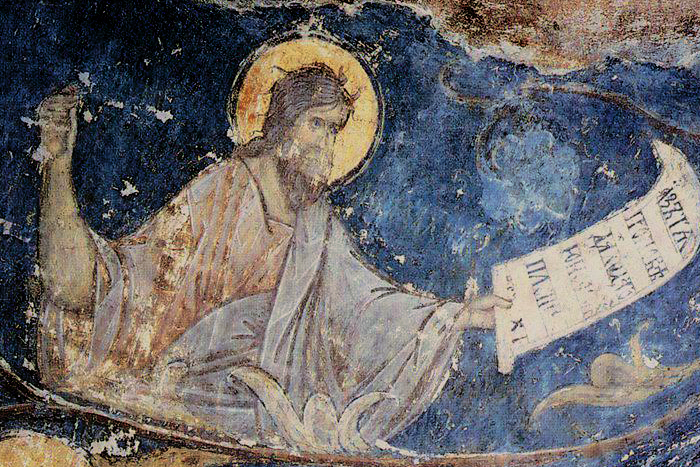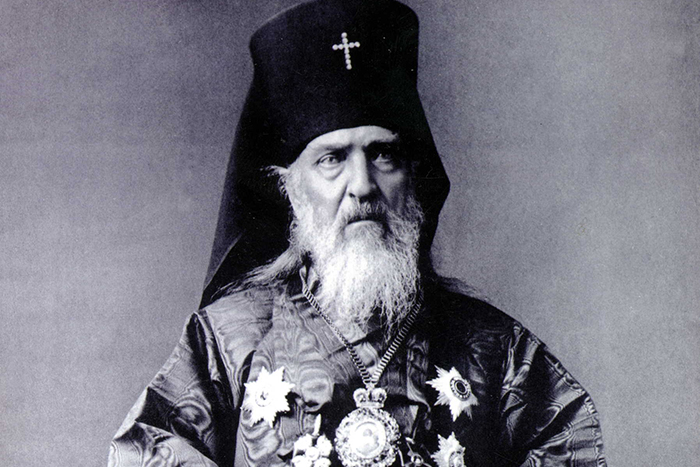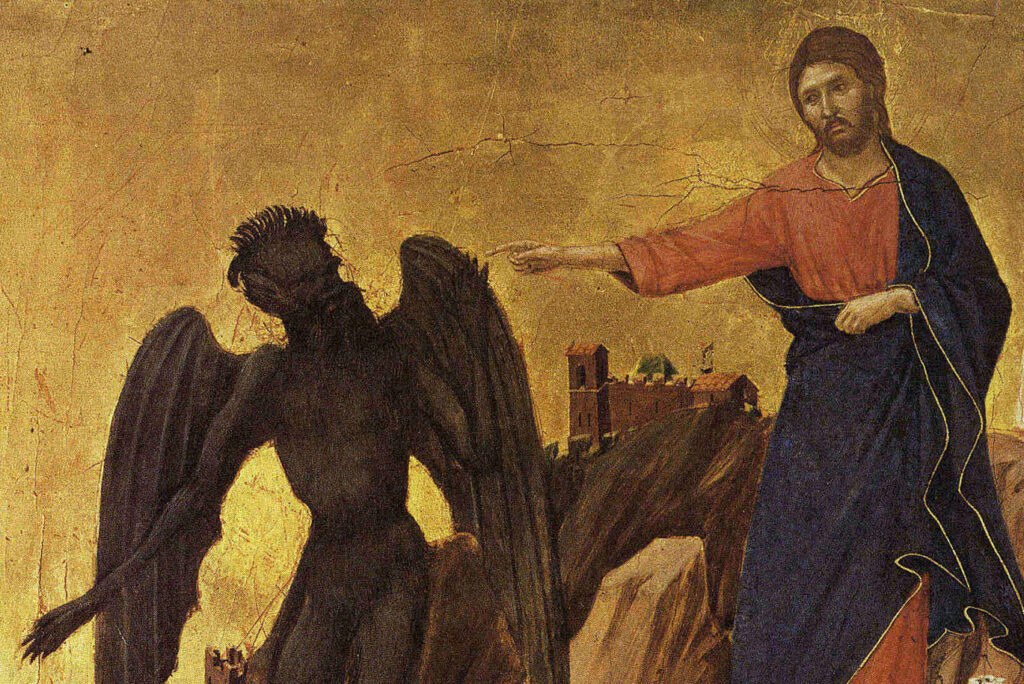
Reading the prophets, we see that all the events of the past, present, future are perfectly known to God. This should help us not to worry too much and hold our hearts when history tectonic shifts happen before our eyes. The main thing for us is to remain faithful to God – and He will not desert His own.
Fast that has recently started brings us closer to the Nativity of Christ with each passing day. It would be nice to prepare the soul for the feast by special reading and thinking. It is appropriate at this time to read the Old Testament prophecies about the Nativity. Just as before the Great Lent the Church during the service reads several Old Testament books that should prepare our soul for Easter, so on the way to the Nativity it will be useful to recall some of the words of the prophets about the coming birth of the Messiah. Let us look at such prophecies, which we find in the texts of both the Old and New Testaments.
I would like to dwell on the famous prophecy about the Nativity, recorded in the book of the prophet Micah [1]: “But thou, Bethlehem Ephratah, though thou be little among the thousands of Judah, yet out of thee shall he come forth unto me that is to be ruler in Israel; whose goings forth have been from of old, from everlasting” (Micah 5:2). This phrase is well known to us because evangelist Matthew refers to it. The Gospel of Matthew tells how wise men came from the east to Jerusalem and asked where Christ should be born. King Herod had gathered all the chief priests and scribes of the people together and asked them the same question. “And they said unto him, In Bethlehem of Judaea: for thus it is written by the prophet, and thou Bethlehem, in the land of Juda, art not the least among the princes of Juda: for out of thee shall come a Governor, that shall rule my people Israel” (Matthew 2:5-6).
Note that Matthew cites a prophecy text slightly different from the original. This could happen for two reasons. Firstly, there are different editions of the Old Testament texts. The version used by Matthew could not reach us. And secondly, in the New Testament the Old Testament prophecies are often quoted freely, as a periphrasis. It is more important for the New Testament author to convey the main meaning of the prophecy than to quote its word for word. Therefore, such differences in biblical manuscripts are found. In this case, it can be seen that the text from Micah’s book itself is much more complete than that given by the evangelist.
For example, here is one of these differences: Matthew speaks of Bethlehem of Judaea, and Micah speaks of Bethlehem Ephratah. What is Ephratah? This is the second name of Bethlehem. In Scripture, both of these names are applied to the same town. It is interesting to note that Bethlehem means “house of bread”. We remember that Christ called himself “bread”. “I am the bread of life” (John 6:35), – He said. And here we see the fulfillment of the prophecy contained in the very name of the town. In Bethlehem, the One Who is the bread of life is born, and Bethlehem becomes the house of bread, not only by name, but also by the event that took place in it. While Ephratah means “fruitful”. This meaning is reflected in our worship. Soon, when forefeast of the Nativity starts, we will sing a troparion of forefeast, starting with these words: “Prepare, O Bethlehem, for Eden has been opened to all. Adorn yourself, O Ephratah, for the Tree of Life blossoms forth from the Virgin in the cave”. Where it says: “the Tree of Life blossoms forth from the Virgin in the cave”, – the name Ephratah (fruitful) is used. We see the reference to a precious fruit born of the Mother of God in Bethlehem.
Another difference. “But thou, Bethlehem Ephratah, though thou be little among the thousands of Judah” – is written by Micah. What are these thousands? The thing is that Moses divided the Jewish people into half a hundred, hundreds and thousands. Bethlehem was so small that it formed a thousand only in conjunction with other towns. The small wretched village with several hundred inhabitants is remarkable only for the fact that David came from it – this is what ancient Bethlehem is. Here we see once again that our Savior, upon coming to earth, descends into the depths of dishonor and humiliation, being born in one of the most insignificant Jewish villages, what is more not in the house, but in the cattle manger. It brings to mind the words of the apostle Paul: “But God hath chosen the foolish things of the world to confound the wise; and God hath chosen the weak things of the world to confound the things which are mighty; And base things of the world, and things which are despised, hath God chosen, yea, and things which are not, to bring to nought things that are: That no flesh should glory in his presence” (1 Corinthians 1:27-29).

Turning to Bethlehem, the Lord says through Micah: “out of thee shall he come forth unto me that is to be ruler in Israel”. Unto me, that is, unto God, for the glory of God, for the fulfillment of divine plans. The goal of whole our salvation’s household is glorification of God the Father through the Son by the Holy Spirit. Christ said: “that the Father may be glorified in the Son” (John 14). At the Great Doxology of Matins, we sing: “For Thou alone art holy, Thou alone art Lord, Jesus Christ, in the glory of God the Father. Amen”. This moment also needs to be correctly understood: God saves us, His creation, though out of His love for us, but in the final sense, not for our sake, but for His glory, so that it reveals itself in our salvation. Christ is born on earth, not only for us, but, above all, for the glorification of the Heavenly Father in the salvation of people.
And one more thing that Matthew omits. It is said about the One Who is to be born in Bethlehem that His “goings forth have been from of old, from everlasting”. Of course, this is an indication of the divine nature of Jesus Christ. In the next verse, which we do not consider here, we will talk about the human nature of the Savior – that he will be born from “that she which travaileth hath brought forth” that is, from the Virgin Mary. And in this place we see a prophecy about the eternal nature of the Divine, which Jesus Christ will carry in himself along with His human nature. It brings to mind similar prophecies that speak of the divine origin of the Messiah: “from the womb of the morning: thou hast the dew of thy youth” (Psalm 110:3) and: “and who shall declare his generation?” (Isaiah 53:8).
Now look how important it is, when reading the New Testament and seeing the Old Testament quotes, refer to the original source. Whether in the text itself, or in the context of it, we will always find something interesting that will help us understand the topic raised better.
And how important it is to read the prophets. For example, it is encouraging to see that all the events of the past, present, future are perfectly known to God. It must help us not to worry too much and hold our hearts when history tectonic shifts happen before our eyes. No matter how scary it is to observe this, we need to strengthen our faith and calm down, for God knew all this before the creation of the world, but, nevertheless, allowed it to happen. The main thing for us is to remain faithful to God – and He will not desert His own.
And note please one more thing: we read the prophecy, which was fulfilled. Among the fulfilled prophecies, this is not the only one. Reading the prophets and studying history, we can notice how many Old Testament prophecies were gradually fulfilled. But we also have sweet New Testament prophecies about Christians, and they will undoubtedly be fulfilled, as well as the Old Testament ones. And what are we promised? Oh, a lot! “And God shall wipe away all tears from their eyes; and there shall be no more death, neither sorrow, nor crying, neither shall there be any more pain: for the former things are passed away” (Revelation 21:4). We are promised to see Christ as He is at some mysterious meal with Him in the Kingdom of Heaven. And all this will happen, and will happen with us. Whom else with? For we are Christians. We should remember this when reading the prophets. If their words are fulfilled, then the prophecies of Christ will come true for sure.
Let us think about it in these holy pre-Nativity days and see wise mentors, experienced interlocutors and forerunners of today’s events in the biblical authors. And the main event of the near future is the one which the prophet Micah wrote about almost three thousand years ago: “But thou, Bethlehem Ephratah, though thou be little among the thousands of Judah, yet out of thee shall he come forth unto me that is to be ruler in Israel; whose goings forth have been from of old, from everlasting” (Micah 5:2).
1.Micah lived in Judea in the 8th century BC. He was a contemporary of the prophets Isaiah and Hosea, and just like them, he exposed the Jews in idolatry and moral corruption, predicted the imminent destruction of Jerusalem and the Babylonian captivity. At the same time, he comforted the Jews with the prophecies about the birth of the Messiah, who “shall he be great unto the ends of the earth” (Micah 5:4).
Translated by The Catalogue of Good Deeds
Source: https://pravlife.org/ru/content/prorochestva-vethogo-i-novogo-zaveta-ispolnyayutsya-na-nashih-glazah



